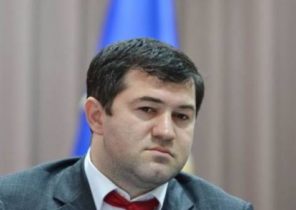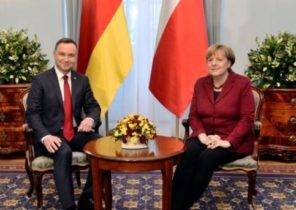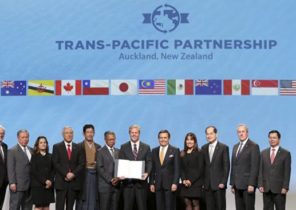
Speaking of US sanctions against Russia, the cold war has still not ended.
In 1974, President Gerald Ford put his signature to the document imposing trade restrictions against the Soviet Union and other Communist countries, which was called amendment of Jackson-Vanik.
Then, the signal addressed to Moscow, was: if you deny people their basic rights — in this case, the right to emigrate from the Soviet Union — you can’t maintain normal business relations with the United States.
It took almost four decades before President Barack Obama finally lifted these restrictions and gave Russia the right to establish full trade relations with the United States signed a law on 14 December 2012. However, this same law known as the Magnitsky Act, introducing sanctions, which have deprived a particular human rights violators from Russia the opportunity to enter the territory of the United States.
That is, in the time of the abolition of one round of sanctions came into effect the other.
Obama imposed additional sanctions after Russia invaded Ukraine in 2014, and then intervened in the course of the US presidential election in 2016.
Now Congress, apparently determined to introduce a new package of sanctions against Russia by bill that Trump will either have to sign or veto it.
“I believe that this bill is good enough,” said Dan fried (Dan Fried), which under the Obama administration was coordinator for sanctions in the state Department and which takes a tough stance against Russia.
“I think that the motive of Congress for the acceptance of this bill was the belief that the Obama administration failed to take adequate measures in response to cyber attacks Russia in the pre-election period”, — he added.
In June the Senate voted for this bill by 97 votes to 2, and, as expected, the House of representatives will vote about the same. This bill will expand the powers of Congress in the matter of the sanctions policy in case the President tries to unilaterally lift the sanctions.
Caught in the middle, Russian scandal, trump almost did not comment on sanctions against Russia. Given such strong bipartisan support of this bill, he most likely will have to sign it. If he uses the veto, it will again be accused of being too soft with Russia. And Congress will easily get the best of it.
Thus, in the near future Russia will face new sanctions. But will they be effective?
Wednesday, July 19, several experts participated in a panel discussion at the Atlantic Council. Although in General they supported the introduction of sanctions, they also issued some cautions.
1. What is the purpose?
Of course, the sanctions have caused some damage to Russia, although it is difficult to measure. They also offended the President of Russia Vladimir Putin — especially the Magnitsky Act.
But if the objective is to change Russia’s behavior, then we cannot talk about any meaningful success, as well as any signs that sanctions can force Russia to make concessions in the future.
The most ambitious package of sanctions was adopted in 2014 and included measures to block international investment in the Russian energy sector — the most important component of the Russian economy.
“We see that sanctions 2014 had an impact on Russia in terms of access to capital, noted Daniel Yergin (Daniel Yergin), Vice Chairman of IHS and one of the leading experts on global energy markets. — So the question is, will these sanctions to deter and to punish, or they will be counterproductive?”
According to supporters of the sanctions, their effectiveness must be assessed based on the actions of Russia for some time. Meanwhile, critics argue that sanctions will only distract from what is really important.
For example, this week us and Russian officials met to discuss the situation with the two diplomatic complexes captured by U.S. authorities in December.
According to critics, the US and Russia should focus on such issues as the war in Syria and the situation in Ukraine.
2. The US needs partners
“We must recognize that the sanctions that are imposed unilaterally, usually do not work, — stated Richard Morningstar (Richard Morningstar), head of the Centre for global energy at the Atlantic Council. — Must have the support of allies”.
According to him, introduced in 2014 sanctions against the Russian energy sector worked, because the US brought them together with the European Union. Those actions being considered at the moment, will expand existing sanctions, but they will enter only the United States.
Morningstar recalled the agreement on the Iranian nuclear programme signed in 2015. Its conclusion was possible only because the US failed to convince the Europeans and other countries to stop buying Iranian oil. Although trump and many Republicans are to this agreement is critical, according to popular opinion, these sanctions forced Iran to sit at the negotiating table.
“In the past we have seen again and again how difficult it is to maintain sanctions unilaterally. We learned from our mistakes,” said Morningstar.
The US economy is 10 times more of the Russian economy: their GDP is $ 18 trillion and $ 1.5 trillion respectively. However, the Russian economy is still too large that it can be significantly hurt by sanctions imposed only to the United States, said David Mortlock (David Mortlock), an expert on international trade who worked on the anti-Russian sanctions in the Council of national security under the Obama administration.
“The program of anti-Russian sanctions is significantly different from other sanctions programs, noted Mortlock. — In the case of such countries as Iran, any new action can quite substantially change the situation. Iran is a fairly large economy, but he is still far from Russia”.
3. How will Putin react?
So far, the President of Russia continues its provocative policy, despite the sanctions.
According to Frida, this is why it is extremely important to increase pressure.
“Putin believes that he will be able to put pressure on Ukraine longer than we will be able to resist, — he said. — But he can make a deal if you understand that the resistance of the Ukraine and the West effectively. And he’s not going to deal, if they decide that Ukraine will give up or that we give up”.
According to Frida, Russia will answer for the new package of sanctions. A few days after the signing by Obama of the Magnitsky act in 2012, Russia banned American families from adopting Russian children.
“We shouldn’t wring your hands and too much worrying about what Russia may do in response to our sanctions, he said. — We need to focus on how we continue to behave in relation to Russia in an attempt to reach an agreement that will allow us to lift the sanctions”.







